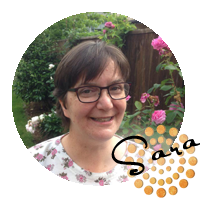This has been an amazing season for CitySalt blog writers and readers. I have been blessed again and again by the insights and hearts revealed through the theme of “Seeing the Other“. If you missed any of the posts in the last few months, I highly recommend that you click on the Salt Blog and scroll down to read the ones you missed. It is a treasure trove.
Do you ever think of God as ‘the Other?’
The Nicene Creed begins,
“We believe in one God,
the Father, the Almighty,
maker of heaven and earth,
and of all that is, seen and unseen.”
I recited that creed every Sunday in my youth and I believed it and still do. I have spent a lifetime trying to wrap my head and my heart around a God who is amazingly wise, all powerful, perfect, all seeing, a God who created a universe that appears endless and incomprehensible. A God who Psalm 139 says, “knit me together in my mother’s womb.” We have only scratched the surface in understanding how these bodies of ours function and must constantly amend our understanding as we learn more. How is it that I can have anything in common with the amazing Being who created me?
“We believe in one Lord, Jesus Christ,
the only Son of God,
eternally begotten of the Father,
God from God, Light from Light,
true God from true God,
begotten, not made,
one in Being with the Father.
Through him all things were made.”
Jesus, one with the Father, also God, almighty, all powerful…
John 1:1-5
In the beginning the Word already existed.
The Word was with God,
and the Word was God.
He existed in the beginning with God.
God created everything through him,
and nothing was created except through him.
The Word gave life to everything that was created,
and his life brought light to everyone.
The light shines in the darkness,
and the darkness can never extinguish it.
Yet, he calls me, friend (John 15:15). He is my Savior, He laid down His life for me. He left His place by the Father’s side and experienced pain and death for me. He came as a servant when He was God. How is it that I have anything in common with this extraordinary Man?
“We believe in the Holy Spirit,
the Lord, the giver of life,
who proceeds from the
Father and the Son.
With the Father and the Son
he is worshipped and glorified.
He has spoken through the Prophets.”
The Holy Spirit, teaches me, empowers me, inspires me. He, too, is God. He is also a gift from God to us that we might know Him better and be more like Him.
John 14:26
But when the Father sends the Advocate as my representative—that is, the Holy Spirit—he will teach you everything and will remind you of everything I have told you.
John 20:22
Then he breathed on them and said, “Receive the Holy Spirit.”
How is it that I have anything in common with this amazing trinity of Beings? I can interact with Them but can I truly be like Them? The idea is so much greater than me.
Does God see me as “the Other?” It would appear not.
Genesis 1:27
So God created human beings in his own image.
In the image of God he created them;
male and female he created them.
I (we) are created in the image of God. He says so Himself. How can that be? I see such a difference when I compare my behavior with His. I (we) have fallen from a great height, no doubt about it. But still we are created to be like Him. We are not ‘other’ than Him, we are created in His image. The whole of the bible, the coming of Jesus and the gift of the Holy Spirit reinforces for me the truth that God the Father, the Son and the Holy Spirit are committed to restoring that image and relationship to its former glory.
Do I completely understand it? Do I know how it will be accomplished? Can I wrap my head around all that it entails? No. But I know more than I did, 5, 10, 30 years ago, because He is intent on leading me if I will listen. Have I executed each learning challenge flawlessly? Hardly. But it is worth it to me to keep pushing forward through my incompleteness and lack of understanding to be more like Him. He has made it clear that it is worth the struggle for Him and so it is worth it to me.
Romans 8:18
For I consider that the sufferings of this present time are not worthy to be compared with the glory which shall be revealed in us.
Is God “Other” than me? No. He is the Creator and I am the created, it will always be that way. Yet in His love He saw fit to create me in HIs image. He wants me to be like Him and be in relationship with HIm. It seems it is HIs good pleasure. I want to say, “yes” to that.
About the Author
Darla wears many hats, one of them being Media Communication Coordinator for CitySalt Church. She is a life long learner, who is always up for a challenge. She is married to her amazing husband, Mark. Though they have no children she enjoys being involved in the lives of her nieces and nephews as their ‘crazy aunt.’











